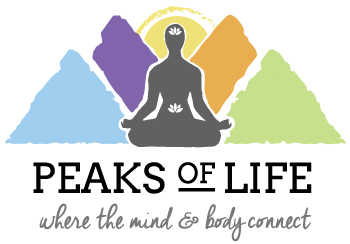Last time I talked about being 100% responsible for how you feel. I provided some tips to help when you catch yourself giving that responsibility to someone else.
This time I want to discuss how at a deeper, unconscious level, there are times when something from our past is being triggered – that causes us to unconsciously feel like we are not responsible for how we feel or react.
Here are just a few examples:
You did not feel seen or heard as a child. You were the youngest child and felt like you did not have a voice. Maybe you were left home alone on many occasions or you had a sibling that was ill and all of the attention was focused on them. Now as an adult you get triggered when someone does not acknowledge you or does not respond to you right away. It brings up the feelings you had as a child when you felt ignored and now you immediately feel hurt, angry, and/or sad.
You had to grow up quickly as a child. You were the oldest child in the family or you were an only child and you were expected to take care of your siblings or your parents. You were seen as the reliable one, the one everyone could count on and turn to. Now as an adult people constantly look to you to make decisions, to be the leader. It triggers an overwhelming feeling of pressure to take care of everyone around you.
You had to be the “good” child. There was abuse in your home, either physically and/or emotionally and you experienced and/or witnessed it. This can be overwhelming to a child and can cause you to shut down, to be quiet, to be “good,” so that you can try and avoid the abuse. Now as an adult you associate feeling safe with being quiet, with staying under the radar. You hold back expressing how you feel and what you want.
You were a people-pleaser. You were in an abusive relationship and were constantly trying to please your abuser so that the abuse would stop. You are no longer in that relationship, but now you immediately try to be accommodating and pleasing to the people in your life so that you will avoid any more abuse.
In each of these examples, a trauma was experienced. If we do not process, move through, and heal the trauma, it is going to linger. It is going to get triggered. It is going to cause us to hand over how we feel to someone else, sometimes anyone else. It feels very personal and you will find that you can easily get annoyed, upset, depressed, angry, etc. Many times you will not be sure why you react as negatively and as quickly as you do.
This is a time to be curious and ask yourself the following questions:
Did any of these examples resonate with me?
Are there situations where I am allowing others to be responsible for how I feel?
Have I noticed any specific situations or people that get me upset easily and/or quickly?
Is there a trauma I’ve experienced in my past that I have not healed, processed, or moved through that is being triggered?
Awareness is the first step of taking care of yourself when you’ve experienced trauma. When you become aware you can start to heal. You can reach out to your support system of friends, your spouse, partner, family, and/or counselor/therapist. It is especially important to practice self-care, love, and compassion.
“True healing occurs when I give myself permission to feel whatever feelings live below the triggers.” Gabby Bernstein

